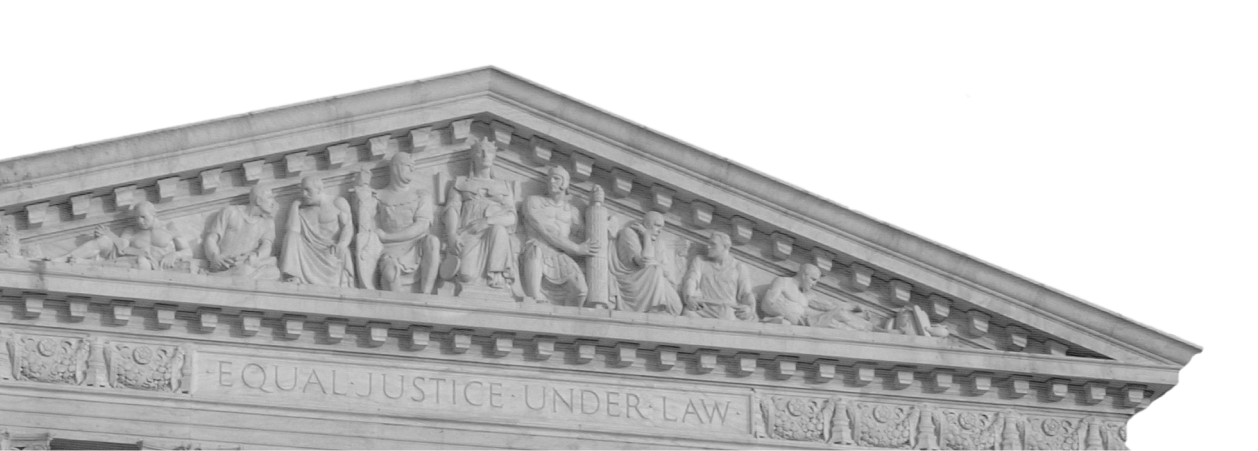사실 정보 시트
소송
무어 대 하퍼
모든 사람을 위한 자유롭고 공정한 선거를 보호합니다: 무어 대 하퍼
2023년 6월 미국 대법원은 다음과 같은 판결을 내렸습니다. 무어 대 하퍼 부시 대통령이 임명한 판사 J. Michael Luttig가 다음과 같이 설명한 사건입니다. “미국 민주주의의 가장 중요한 사례” 법원은 유권자들에게 큰 승리를 안겨주었고, 미국의 민주주의의 기본 구조를 파괴했을 위험한 아이디어를 기각했습니다.
Common Cause의 법적 싸움은 반격에 도움이 되었습니다. “오늘날 우리 민주주의가 직면한 가장 심각한 법적 위협입니다.” 노스캐롤라이나주의 무법자 의원들은 모든 주 의원이 주 법원이나 주지사의 견제와 균형에 부딪히지 않고 선거 규칙을 만들 수 있어야 한다고 제안했습니다.
미국 대법원의 9명의 판사는 무법의 입법자라는 개념을 기각함으로써, 투표의 자유를 제한하고 훼손하려는 무모한 시도로부터 유권자들을 보호했습니다.
일이 어떻게 이 지경이 되었을까?
무어 대 하퍼 이는 우리가 노스캐롤라이나주 대법원에서 공정한 지도 승리를 거두었고, 사회 정의를 위한 남부 연합과 호건 러벨스를 포함한 투표권 파트너들과 함께 이룬 성과입니다.
무슨 일이에요: 2021년 노스캐롤라이나 주 의원들이 조작된 지도를 통과시킨 후, 우리는 하원 의장 팀 무어를 고소했습니다. 이 사건은 노스캐롤라이나 주 대법원까지 갔고, 무어의 지도는 당파적 조작이라는 이유로 무효화되었습니다.
무어와 노스캐롤라이나 주의원들은 공정한 지도를 그리는 대신 미국 대법원에 소송을 제기하여 우리의 투표 지도와 선거에 대한 무제한의 권한을 가져야 한다고 주장했습니다.
한 정부 부서에 그런 절대적인 권력이 주어졌다면 미국 민주주의의 토대가 되는 견제와 균형이 깨졌을 것입니다. 그것은 주 의회와 집권 정당이 유권자들을 상대로 선거를 무기화할 수 있게 했을 것입니다.
무엇이 위태로웠나요?
무법자 입법자 이론이 성공했다면, 주 의원들이 정치적, 당파적 이익을 위해 선거를 조작할 수 있었을 것입니다. 그리고 그들은 주 법원이나 주지사의 어떠한 견제도 받지 않고 그렇게 할 기회를 가졌을 것입니다.
그것은 유권자 억압 전술을 합법화했을 것입니다.
- 유권자 명단에서 유권자를 광범위하게 제거
- 인기 있는 조기 투표 및 우편 투표 옵션에 대한 극적인 삭감
- 국민의 투표권을 약화시키는 조작된 투표 지도
귀하의 재정 지원은 우리가 다음과 같은 영향을 미치는 데 도움이 됩니다. 권력에 책임을 묻는다 민주주의를 강화합니다.
관련 자료
누르다
뉴스 클립
CNN: DOJ 및 기타 당사자가 대법원에 독립 주 의회 분쟁을 피하라고 촉구
이 그룹의 변호사인 닐 카티알은 법원이 2024년 선거 주기 동안 비상 상황에 다시 발생할 때까지 기다리기보다는 노스캐롤라이나 사건을 사용하여 독립 주의회 교리 문제를 결정해야 한다고 강조했습니다.
뉴스 클립
MSNBC의 "Symone"(영상): Common Cause의 Kathay Feng이 대법원 사건인 Moore v. Harper가 제기한 민주주의에 대한 위협에 대해 논의합니다.

